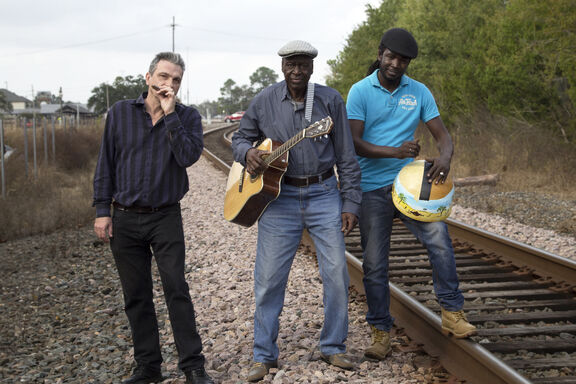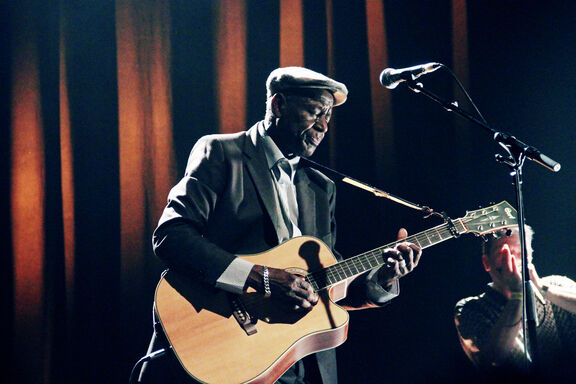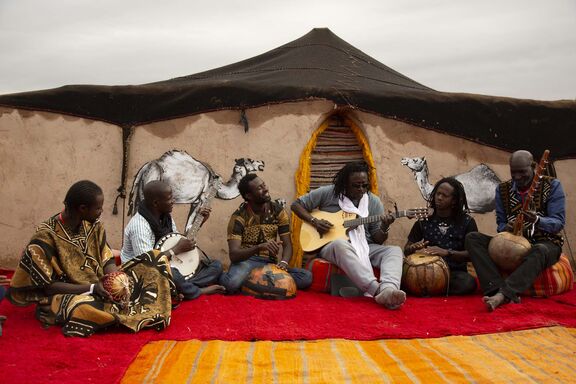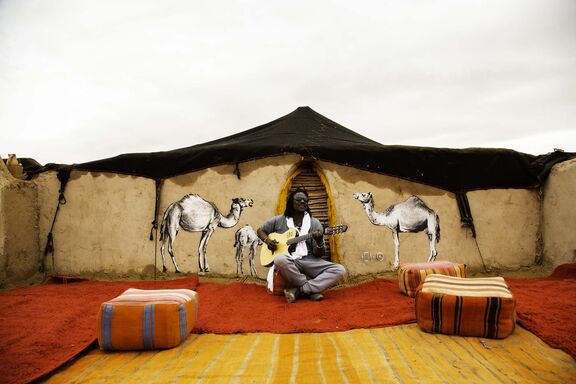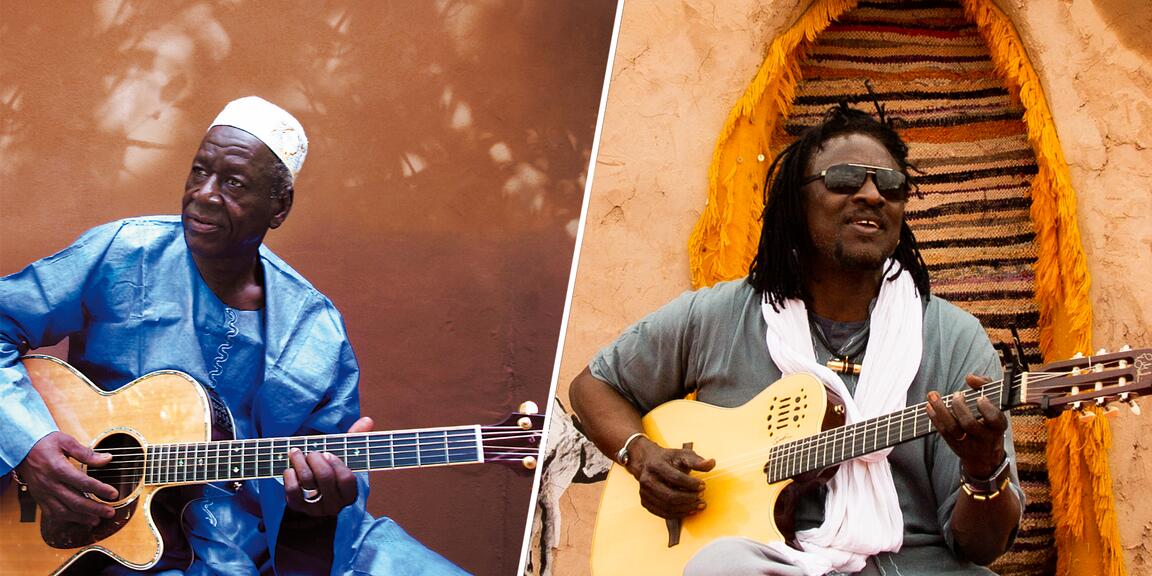
Double Bill : Boubacar Traoré + Habib Koité & Bamada
The legends of Mali Blues
A unique opportunity to see two legends of Malian music together in one evening. With Boubacar Traore (even Ali Farka Toure looked up to him so much that he carried his guitar) and Habib Koite, two absolute world stars are on stage. And if that's not enough, they will do an exclusive collaboration at the end of the evening. This will be an unprecedented evening full of beautiful Mali blues.
“If the maximum is 5 then I give him a 10,” his compatriot Ali Farka Touré once said about him. Boubacar Traore plays a mixture of blues and Malian roots music; based on the Khassonké rhythms of North-West Mali. His basic but refined strumming and picking and his sunny-melancholic singing; it forces silence and participation. The driving force behind the melody lines is the infectious khassonké rhythm of the calabash played by Babah Koné. Vincent Bucher adds sensitive harmonica lines. A great opportunity to see the godfather of popular Malian music at work again
Rolling Stone once called Habib Koité “Mali's biggest star” and Bonnie Raitt compared him to Jimi Hendrix and Stevie Ray Vaughan. Koité is known for his unique guitar playing. He uses an open pentatonic tuning, magical strumming that can suddenly flutter away to blues and flamenco. Koité's singing style is intimate and relaxed, with an emphasis on calm, moody vocals. Koité writes all the music and lyrics, which are sung in English, French and Bambara.
Perhaps the biggest key to Habib Koité & Bamada's success is their dedication as live musicians. Since 1994 they have been touring the world continuously and have played more than 1500 shows. Musically, Habib Koité continues to surprise by bringing together different Malian music styles into a new and unique sound.
Flagey, Muziekpublique
